Your search “Keep%20ethe%20eDeacth%20ePenalty%abolished%20ein%20ethe%20ePhilippfines%20e%20e%20e%20e%20e%20e%20e%20e%20e%20e/page/www.humanrights.asia/resources/report/20e11/AHRC-sur-008-20e11/act_download/file ”

Article(s)
‘Sakineh’ campaign to culminate in worldwide protests
on 25 August 2010
What started as an effort to save an Iranian woman sentenced to death by stoning is turning into a global movement for human rights and against capital punishment.
2010
Cruel, Inhuman and Degrading Treatment and Punishment
Iran (Islamic Republic of)
Public Opinion
Page(s)
Life of the Network
on 22 June 2020
Abolitionists around the world are mobilizing to end the death penalty. World Day, World Congress, important events for the life of the World Coalition such as the steering committees, but also meetings, events and actions carried out by our members around the world: do not miss any event related to the fight against the death […]
2020
Article(s)
Hank Skinner’s execution stayed amid international action
on 25 March 2010
The American death row inmate heard the news less than one hour before he was scheduled to die. From Huntsville to Paris, activists demand that new evidence be examined.
2010
Innocence
United States
Page(s)
Podcasts recomendations
on 14 March 2023
Podcasts or series of podcasts by our members Broken Law Podcast Hosted by the staff of the American Constitution Society. Episode 23: How the World Views the Death Penalty Released on: Nov. 09, 2021 Listen to Podcast ADPAN Podcasts Series of podcasts hosted by The Anti-Death Penalty Asia Network Listen to Podcast Other podcasts to […]
2023
Article(s)
Legal Officer – The Death Penalty Project
By The Death Penalty Project, on 23 January 2018
The Death Penalty Project recruits a Legal Officer.
2018
United Kingdom
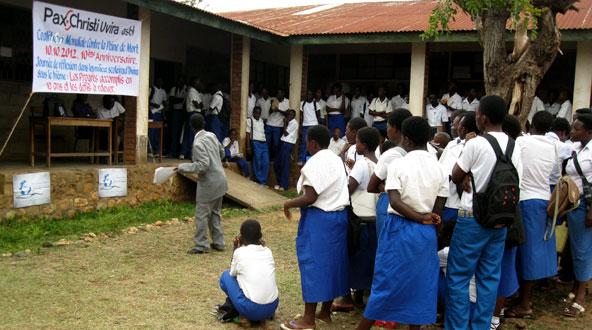
Article(s)
Thousands of abolitionists take action for a better world
By Thomas Hubert, on 11 October 2012
Dozens of events scheduled on five continents for the 10th World Day Against the Death Penalty combined actions by activists and diplomats, cultural and educational events and media presence.
2012
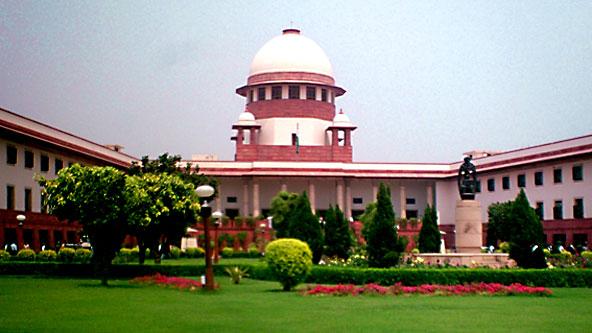
Article(s)
Indian ruling highlights importance of next World Day
By Emile Carreau, on 3 February 2014
On 21 January, India’s Supreme Court formally banned the execution of mentally ill prisoners and in doing so highlighted why this year’s World Day against the Death Penalty, which is dedicated to issues of mental health, is so important.
2014
India
Intellectual Disability
Mental Illness

Article(s)
California ruling paves way for abolition of one of the world’s largest death rows
By Elizabeth Zitrin, on 18 July 2014
United States Federal District Court Judge Cormac J. Carney, who was appointed by former President George W. Bush, a strong supporter of the death penalty, ruled on 16 July that California’s death penalty system violates the US Constitution.
2014
Cruel, Inhuman and Degrading Treatment and Punishment
United States
Article(s)
Project officer – The Death Penalty Project
By The Death Penalty Project, on 23 January 2018
The Death Penalty Project is recruiting a Project Officer.
2018
United Kingdom

Article(s)
Drug policy reform, harm reduction movement and the death penalty abolition movement have much in common
By Aurélie Plaçais, on 26 June 2019
As 26 June is “Support. Don’t Punish” Global Day of Action, the World Coalition shares some insight on the 2019 Harm Reduction International Conference which took place in Porto end of April.
2019
Drug Offenses
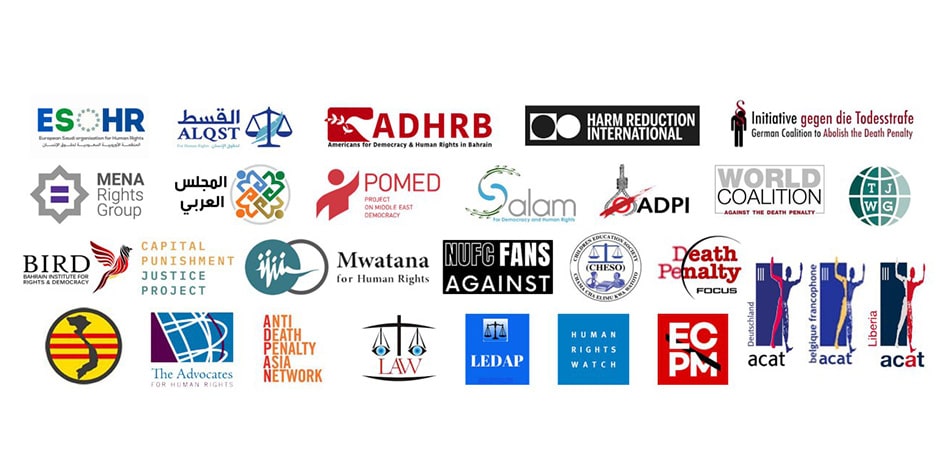
Article(s)
Escalating concerns over the lives of minors threatened with death in Saudi Arabia
on 3 May 2024
The undersigned organizations express their grave concern for the lives of minor defendants particularly the two young men, Yousif Al-Manasif and Ali Al-Mubaiouq, who are at imminent risk of execution in Saudi Arabia following confirmed information that the Specialized Criminal Court of Appeal (SCCA) has upheld their death sentences.
2024
Juveniles
Saudi Arabia
Article(s)
World Day: inventiveness against the death penalty
on 23 October 2007
France, Peru, Togo, India… Abolitionist activists sounded a rallying call for the 5th World Day Against the Death Penalty across numerous countries via a variety of initiatives.
2007
Denmark
Mongolia
Peru
Public Opinion
Republic of Korea
Taiwan
Article(s)
International mobilisation saves the life of Filipina maid
on 12 December 2007
A Filipina woman sentenced to death in Kuwait for the murder of her employer has seen her sentence commuted to life imprisonment after joint action by migrant and abolitionist groups.
2007
Kuwait
Philippines
Women
Article(s)
Saudi Arabia: why are foreigners losing their heads?
on 26 March 2008
Rizana Nafeek, a Sri Lankan servant sentenced to death by a Saudi court, is facing decapitation. ACAT-France and ECPM have joined forces to defend poor immigrants at risk of capital punishment in Saudi Arabia.
2008
Fair Trial
Juveniles
Legal Representation
Saudi Arabia
Women
Article(s)
African Commission urges Gaddafi not to kill Nigerian convicts
on 20 September 2009
The African human rights watchdog has asked Libya not to execute 20 Nigerians on death row in the North African country after a Nigerian NGO highlighted their plight.
2009
Libya
Moratorium
Nigeria
Article(s)
Bad press for China after Briton’s execution
on 10 January 2010
Bitter criticism has been targeting China since the execution of British national Akmal Shaikh in the Chinese province of Xinjiang on December 29 after he was found guilty of transporting drugs.
2010
China
Mental Illness
United Kingdom
Article(s)
United Nations headed for new moratorium resolution
on 15 November 2010
A proposed United Nations General Assembly resolution calling for a global suspension of executions has gained the support of two more countries pending a plenary vote next month.
2010
Bhutan
Kiribati
Maldives
Mongolia
Moratorium
Togo

Article(s)
Progressing towards abolition in East Africa
on 7 August 2011
On 24-27 July, 2011, World Coalition members Penal Reform International (PRI), Foundation for Human Rights Initiative (FHRI) and the International Commission of Jurists-Kenya section (ICJ), jointly hosted a regional roundtable on “Death Penalty in East Africa: Challenges, Strategies and Comparative Jurisprudence”, with the Judicial Studies Institute (JSI) in Nairobi, Kenya.
2011
Death Row Conditions
Fair Trial
Kenya
Article(s)
Uniting activists’ forces is Amina Bouayach’s obsession
on 25 February 2010
The Moroccan human rights campaigner came to discuss the best ways of bringing together abolitionist efforts with World Congress participants.
2010
Morocco
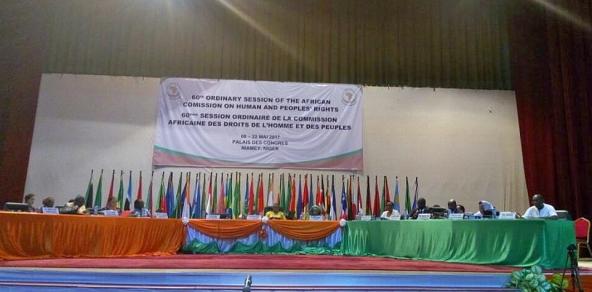
Article(s)
A major abolitionist gathering for the 60th ordinary session of the African Commission on Human and People’s Rights in Niger
By Jessica Corredor, on 19 May 2017
The work of the 60th ordinary sessions of the African Commission on Human and People’s Rights (ACHPR) took place in Niger between the 8th and the 22th of May. Invited by SYNAFEN, one of its members, the World Coalition took this opportunity to gather in the margins of the ACHPR session.
2017
Niger

Article(s)
Inquiry into Australia’s Advocacy for the Worldwide Abolition of the Death Penalty
By Peter Norden, on 25 November 2015
On 17, 20 and 27 November, the Australian Parliamentary Committee on Foreign Affairs is conducting public hearings on Australia’s advocacy for the abolition of the death penalty. The World Coalition and its members uses this opportunity to make their voices heard.
2015
Australia
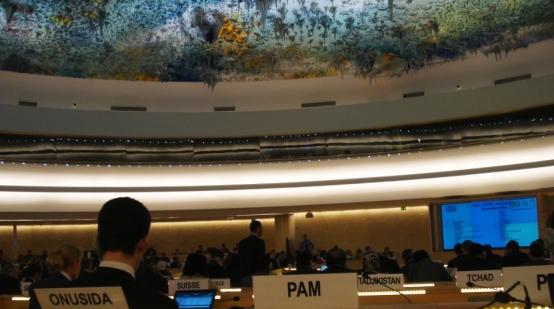
Article(s)
Children of people sentenced to death attract the UN’s attention
By Léa Macarez, on 19 September 2013
The UN Human Rights Council brought together representatives from civil society, States and the UN itself to discuss the rights of children whose parents are sentenced to death or executed.
2013
Juveniles

Article(s)
Call for actions on World Day in the Philippines
By World Coalition Against the Death Penalty, on 1 July 2020
The World Coalition Against the Death Penalty and its 14 international member organizations active in the Philippines, the Maldives and Turkey are part of a joint project which aims to combat the resurgence of the death penalty, particularly in the aforementioned three countries at risk.
2020
Philippines
Article(s)
Call for actions on World Day in Sub-Saharan Africa 2
By World Coalition Against the Death Penalty, on 17 June 2020
The World Coalition Against the Death Penalty (World Coalition) and FIACAT are part of a joint project which aims to contribute to the abolition of the death penalty in Sub-Saharan Africa.
2020
Burkina Faso
Burundi
Cameroon
Congo
Côte d'Ivoire
Democratic Republic of the Congo
Ghana
Guinea
Kenya
Liberia
Mauritania
Niger
Senegal
Sierra Leone
Togo
United Republic of Tanzania
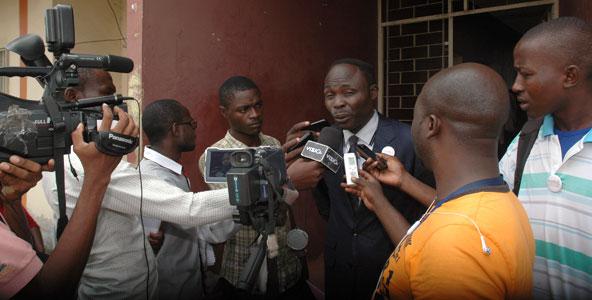
Article(s)
Working with journalists to expose the death penalty’s flaws
By World Coalition Against the Death Penalty, on 30 June 2014
Journalists and activists held a joint practical workshop during the World Coalition’s recent AGM in Puerto Rico to discuss ways of getting the abolitionist message across in the media.
2014
Public Opinion
Puerto Rico
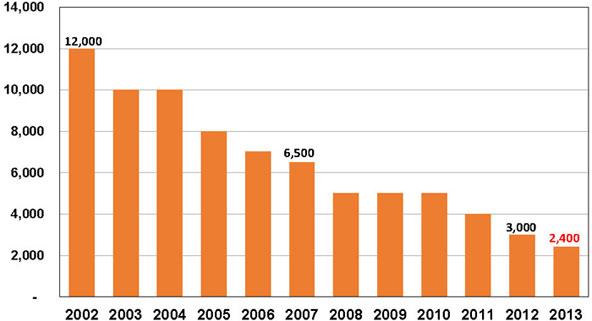
Article(s)
China’s “efforts to gradually reduce the application of the death penalty”
By Aurélie Plaçais, on 30 October 2014
Following a decision by the Communist Party’s Central Committee in November 2013 to “gradually reduce the number of crimes punishable by death”, a draft amendment to China’s criminal law was submitted for initial review to the country’s National People’s Congress this week.
2014
China
Article(s)
Call for actions on World Day in the Maldives and Turkey
By World Coalition Against the Death Penalty, on 17 June 2020
The World Coalition Against the Death Penalty and its 14 international member organizations active in the Philippines, the Maldives and Turkey are part of a joint project which aims to combat the resurgence of the death penalty, particularly in the aforementioned three countries at risk.
2020
Maldives
Turkey
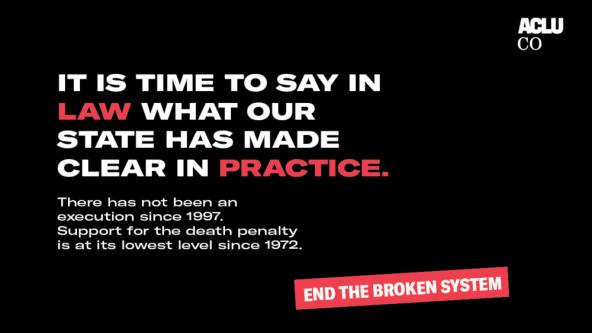
Article(s)
How Colorado became the 22nd abolitionist State in the USA
By Aurélie Plaçais, on 30 March 2020
On March 23 2020, the Governor of the State of Colorado, Jared Polis, signed legislation abolishing the death penalty. The bill SB20-100 had passed the Senate by a 19-13 vote on January 30 and the House by a 38-27 vote on February 26. He also commuted the sentences of the three people on death row […]
2020
United States
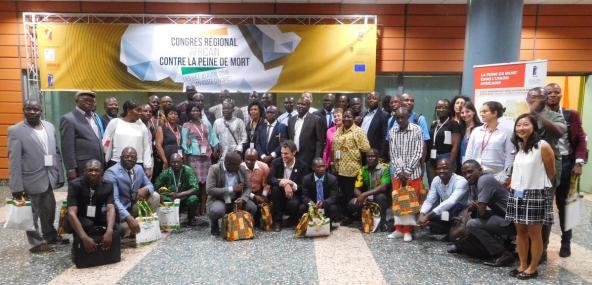
Article(s)
World Coalition welcomes the success of the Regional Congress in Africa
By World Coalition Against the Death Penalty, on 12 April 2018
The World Coalition Against the Death Penalty held its Steering Committee meeting on 11/04/2018 in Abidjan, Côte d’Ivoire, following the Regional Congress held on 09-10 April 2018.
2018
Article(s)
Human Rights Coordinator – HRI
By Harm Reduction International, on 9 April 2019
Harm Reduction International is currently seeking to recruit a full-time Human Rights Coordinator to join its Human Rights and Justice team for a period of six months.
2019
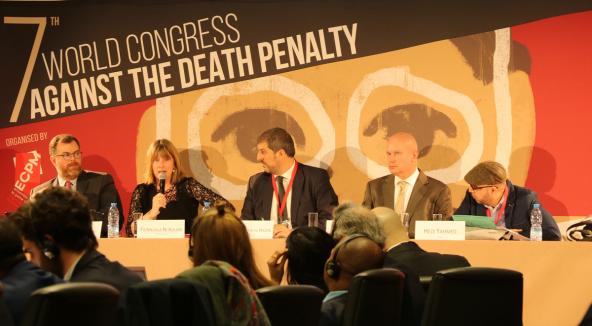
Article(s)
7th World Congress – 28th february
By World coaltion against death penalty, on 28 February 2019
The programme of the 7th World Congress continued today with more than fifteen events held at the Egmont Palace. Plenary meetings, round tables, workshops, screenings and signings… This is a non-exhaustive summary of this new day.
2019
Public Opinion
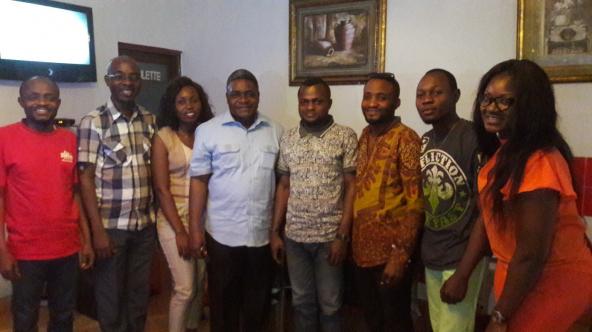
Article(s)
Democratic Republic of the Congo: the abolitionists organize workshops for journalists
By Thalia Gerzso, on 25 September 2017
Concerned by the population’s view on the death penalty, the Human Rights Defenders and Abolitionist Advocates in Democratic Republic of the Congo Network [Réseau des associations de défense des droits de l’homme et militants abolitionnistes de la peine de mort en République Démocratique du Congo (RADHOMA)] organized several training courses for journalists in the past few months.
2017
Democratic Republic of the Congo
Public Opinion
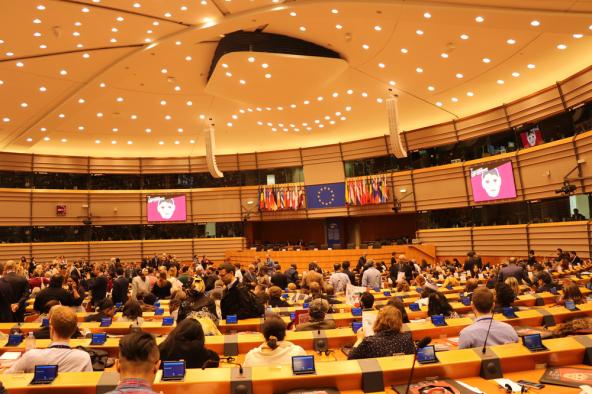
Article(s)
7th World Congress – Opening ceremony and first day
By World coaltion against death penalty, on 27 February 2019
Launched yesterday, abolitionists from around the world have gathered in Brussels for the 7th World Congress Against the Death Penalty organized by ECPM in partnership with the World Coalition that will continue until Friday. Looking back on the last two days of a Congress that has been thus far rich in emotion
2019
Public Opinion
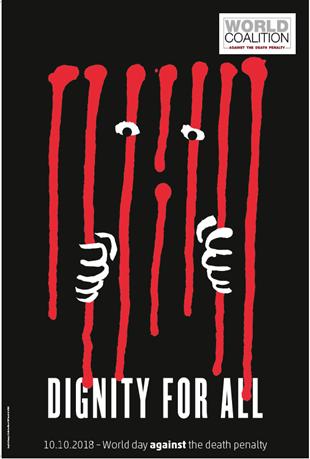
Article(s)
Overcoming the isolation of the people sentenced to death and their relatives
By World Coalition Against the Death Penalty, on 10 September 2018
One of the observations made by the World Coalition while doing the preliminary work for this year’s World Day, is the isolation in which the people sentenced to death might live.
2018
Death Row Conditions
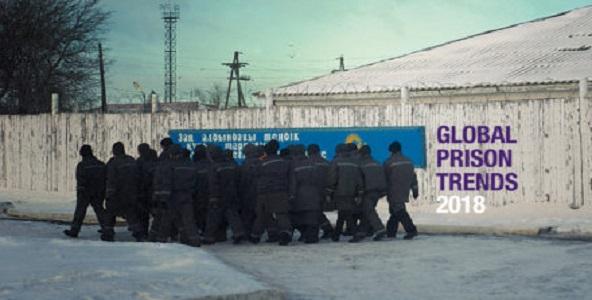
Article(s)
Global Prison Trends 2018 4th Edition
By Penal Reform International, on 6 June 2018
Global Prison Trends 2018 is the fourth edition in PRI’s annual flagship Global Prison Trends series, which identifies topical developments and challenges in criminal justice and prison policy and practice. It is published in collaboration with the Thailand Institute of Justice, and features a foreword by the Rt Hon Helen Clark, Member of the Global Commission on Drug Policy, Former Prime Minister of New Zealand and Former Administrator of the United Nations Development Programme.
2018
Death Row Conditions
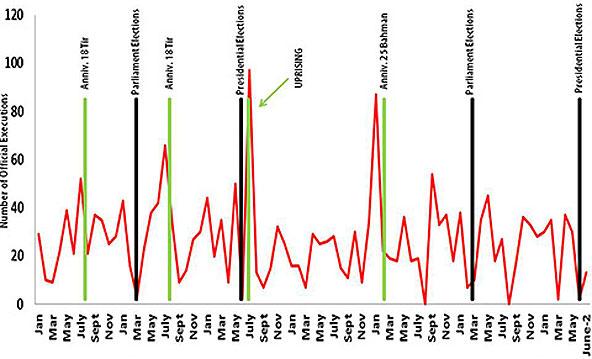
Article(s)
Stats show Iran executions are linked to political events
on 17 July 2013
Figures examined by World Coalition member organisation Iran Human rights show peaks in the use of the death penalty before and after each election.
2013
Drug Offenses
Iran (Islamic Republic of)

Article(s)
Expanded Ban on Death Penalty for Intellectually Disabled People in California
By Louis Linel, on 1 September 2020
The California State Legislature extended the ban on capital punishment for intellectually disabled people
2020
Intellectual Disability
United States
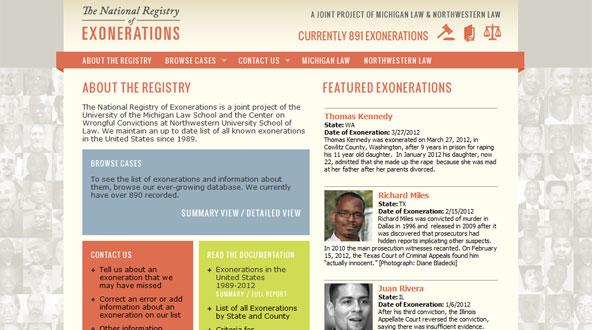
Article(s)
One in nine exonerations in new database is a capital case
By World Coalition, on 26 May 2012
A new online project listing 891 exonerated wrongful convictions in the US includes 101 death sentences.
2012
Innocence
United States
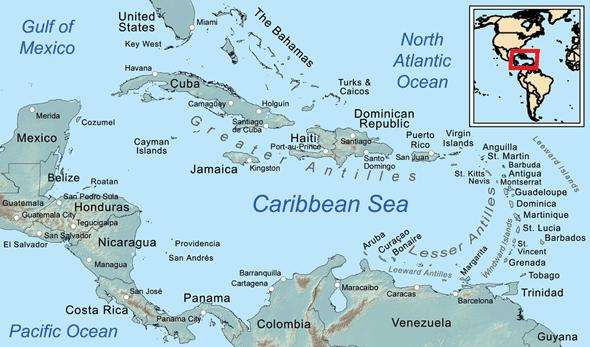
Article(s)
International conference addresses Caribbean outlook on capital punishment
By Emile Carreau, on 26 October 2011
A two-day conference organised by the Community of Sant’Egidio on the death penalty in the Greater Caribbean took place in Madrid between 17-19 October, highlighting issues of rising crime and international influence in the region.
2011
Murder Victims' Families
Public Opinion

Member(s)
KontraS (Commission for the Disapeared and Victims of Violence)
on 30 April 2020
KontraS (Commission for the Disappeared and Victims of Violence) in Indonesia is a human rights NGO that deals with human rights issues in Indonesia, particularly civil and political rights. Abolition of the death penalty is one of its advocacy objectives. KontraS is a member of regional and national networks: Anti Death Penalty Asian Network (ADPAN) […]
2020
Indonesia

Article(s)
Europe to lead the abolitionist way
on 29 June 2007
European institutions have decided to press a resolution against the death penalty at the next General Assembly and to mark an official European Day against the Death Penalty on October 10th.
2007
Moratorium
Article(s)
World Coalition General Assembly: all eyes on the UN
on 29 June 2007
The General Assembly of the World Coalition took place in Brussels on June 22nd. Particular focus was placed on the World Day on 10 October and the draft UN resolution for a world moratorium on the death penalty.
Article(s)
Uzbekistan becomes the 70th state party to the UN’s Second Optional Protocol
on 17 December 2008
The former Soviet republic has confirmed its accession to the only international treaty abolishing the death penalty in an irreversible manner.
2008
Clemency
Uzbekistan
Article(s)
Belarus moratorium a condition for closer ties with Europe
on 23 June 2009
The Parliamentary Assembly of the Council of Europe has decided not to restore Belarus’s special guest status until the country establishes a moratorium on the death penalty.
2009
Belarus
Belarus
Moratorium
Article(s)
Two countries asked to ratify the UN Protocol on abolition
on 9 December 2009
As part of the campaign in favour of the treaty on the abolition of the death penalty, Chile and Spain encouraged the Dominican Republic and the Ivory Coast to ratify the text.
2009
Côte d'Ivoire
Côte d'Ivoire
Dominican Republic
Article(s)
US abolitionists are training for the long run
on 24 January 2010
The Annual Conference of the US National Coalition to Abolish the Death Penalty gathered more than 400 abolitionists from around the country around the theme: Training for the long run.”
2010
United States
Article(s)
Preventing exports of lethal drugs from Europe to the US
on 22 January 2011
High-profile civil society organizations have signed a submission appealing to the European Commission to control the exportation, from Europe, of the drugs that are used in US executions.
2011
United States
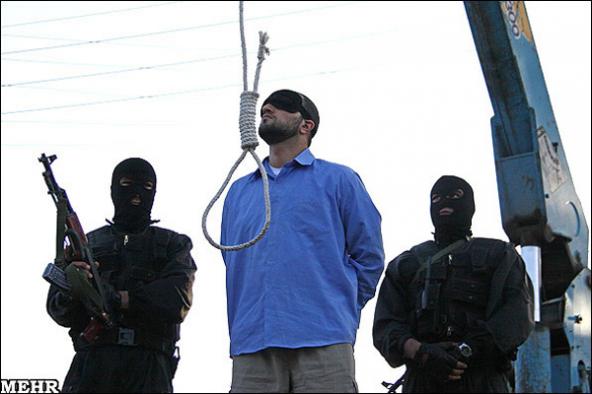
Article(s)
Outrage as Iran’s execution figures explode
on 12 February 2011
Iran hanged 121 people in six weeks between 20 December 2010 and 31 January 2011, many of them after unfair trails and for crimes that did not result in a person’s death.
2011
Drug Offenses
Fair Trial
Iran (Islamic Republic of)
Juveniles
Moratorium
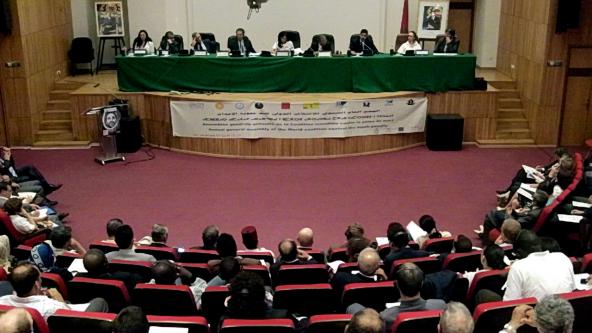
Article(s)
Arab spring at the heart of World Coalition debates
on 26 June 2011
International abolitionists gathered in Morocco have discussed the recent wind of change in the region and the resulting hope for the abolition of the death penalty.
2011
Cruel, Inhuman and Degrading Treatment and Punishment
Iraq
Morocco
Terrorism
Tunisia
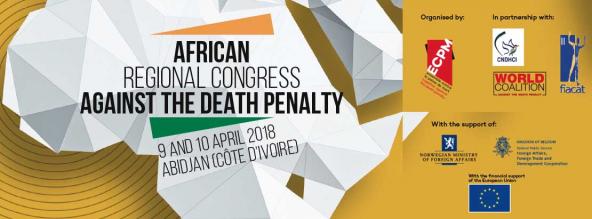
Article(s)
3rd Regional Congress Against the Death Penalty
By World Coalition Against the Death Penalty, on 13 March 2018
The African Congress will be held in Abidjan, Ivory Coast on 9-10 April 2018. Over 300 participants are expected.
2018
Article(s)
Program and Admin Assistant
By World Coalition Against the Death Penalty, on 5 January 2017
The World Coalition Against the Death Penalty recruits interns twice a year for a period of 6 months (from March to August and from September to February).
2017
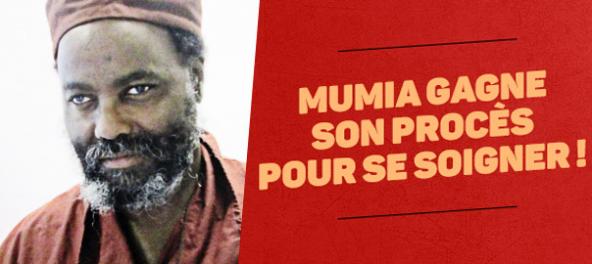
Article(s)
Federal Justice orders the prison administration to immediately provide African-American journalist Mumia Abu-Jamal with treatment
By French Collective "Free Mumia", on 18 January 2017
On the 3rd January of this year, a Federal judge ordered Pennsylvania’s prison administration to immediately provide Mumia Abu-Jamal with medication to treat his hepatitis C infection, justifying his decision in these terms: “budgetary constraints cannot outweigh the Eighth Amendment’s constitutional guarantee of adequate medical care.”
2017
Cruel, Inhuman and Degrading Treatment and Punishment
United States
Article(s)
Country-by-country death penalty data now available
By Center for International Human Rights at Northwestern University School of Law, on 19 April 2011
A new statistic and legal database designed by Northwestern University in partnership with the World Coalition offers a unique view of the use of capital punishment in more than 90 states.
2011
Article(s)
Live from death row
on 25 February 2010
The 180 members of the public who had gathered to view the film Manners of dying had an opportunity to witness a discussion between Mumia Abu-Jamal and his lawyer Robert Bryan.
2010
Switzerland
United States
Article(s)
Human Rights Advocacy Officer
By Harm Reduction International, on 17 August 2017
Harm Reduction International is currently seeking to recruit Human Rights Advocacy Officer. Working as a member of the Campaigns and Advocacy Team.
2017
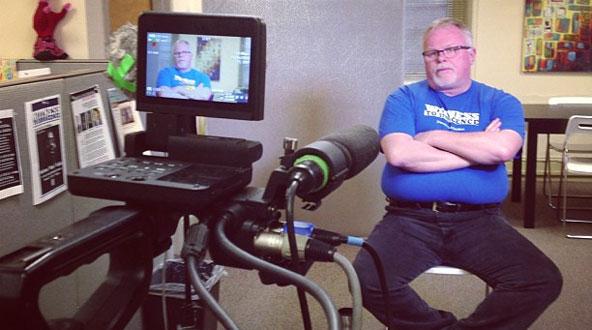
Article(s)
Ten films to expose innocence on death row
By Laura Shacham - One for Ten, on 29 April 2013
One For Ten is a series of short documentary films telling the stories of innocent people who were on death row in the United States, with support from the World Coalition and several of its members.
2013
Innocence
United States
Article(s)
Program and Admin Assistant (Trainee)
By World Coalition Against the Death Penalty, on 31 March 2020
The World Coalition Against the Death Penalty is recruiting an intern for a period of 6 months going from mid-June to mid December 2020.
2020
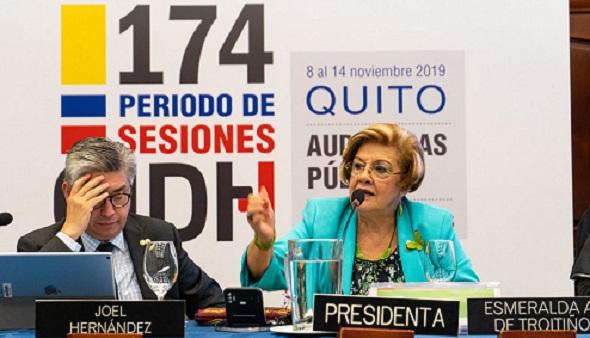
Article(s)
The Inter-American system commits to see the end of the death penalty
By World Coalition Against the Death Penalty, on 13 January 2020
In November 2019, Ecuador hosted a series of high level meetings of the Organisation of American States (OAS), including the Third Forum of the Inter-American Human Rights System and the 174th Period of Sessions of the Inter-American Commission on Human Rights (IACHR), during which abolition of the death penalty was on the agenda.
2020
Article(s)
WANTED: Program and Admin Assistant
By World Coalition Against the Death Penalty, on 19 August 2016
The World Coalition Against the Death Penalty is looking for an intern for a period of 6 months, starting mid-September.
2016
Article(s)
Program and Admin Assistant (Trainee)
By World Coalition Against the Death Penalty, on 9 October 2018
The World Coalition Against the Death Penalty recruits an intern for a period of 6 months starting in September 2019.
2018
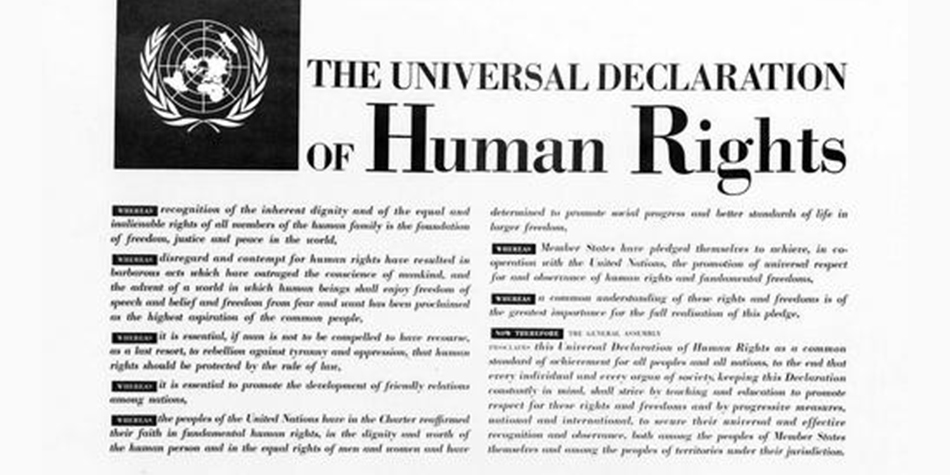
Article(s)
Statement on the occasion of the International Human Rights Day
By World Coalition Against the Death Penalty, on 10 December 2020
Humanity and the global human rights movement, including the World Coalition Against the Death Penalty, are celebrating the 72nd anniversary of the adoption of the Universal Declaration of Human Rights on 10 December 1948. This day has been commemorated by the United Nations as International Human Rights Day.
2020
Moratorium

Article(s)
Zambia is the 25th African State to Abolish the Death Penalty
By Bronwyn Dudley, World Coalition Against the Death Penalty, on 6 January 2023
On 23 December 2022, Zambian President Hakainde Hichilema signed into law Penal Code (Amendment) Bill number 25, which bans the death penalty and the offence of criminal defamation of the president.
2023
Zambia
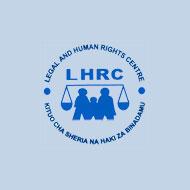
Member(s)
Legal and Human Rights Centre (LHRC)
on 30 April 2020
The Legal and Human Rights Centre (LHRC) is registered as a private, non-governmental, non-partisan and non-profit making organization based in Tanzania, East Africa. The LHRC works to create legal and human rights awareness among the public, in particular the underprivileged section of the society of Tanzania, through legal and civic education, provision of legal aid, […]
2020
United Republic of Tanzania
Document(s)
Somebody’s Child: Amid the Lingering Trauma of Trump’s Executions, a New Project Brings Families to Federal Death Row
By The Intercept, on 15 February 2024
2024
Article
United States
More details See the document
Published on February 11, 2024.
In 2002, Ra’id was arrested alongside several other suspects following a botched bank robbery that left two people dead and another paralyzed. His co-defendants pointed to him as the mastermind, which Ra’id adamantly denied. “I did not take part in that atrocity,” he told the court following his trial. “I did not shoot and kill anyone.”
Newson attended his father’s sentencing hearing, along with his mother, Jeannie Gipson-Newson. A death sentence would be “devastating to my child,” she remembered testifying. But it felt futile. The jurors seemed to have made up their minds. In 2004, Ra’id was sentenced to die.
- Document type Article
- Countries list United States
Document(s)
Testimonies tool – World Day 2022
By the World Coalition Against the Death Penalty, on 28 June 2022
2022
World Coalition
frMore details Download [ pdf - 764 Ko ]
The World Coalition and its members have collected testimonies of victims of torture in the death penalty. Confessions, death row phenomenon, moments before the execution, psychological torture of those not sentenced to death, methods of execution. Read the stories of these victims.
We thank all those who agreed to share their testimonies and their stories.
- Document type World Coalition
- Available languages Outil témoignages - Journée mondiale 2022
Document(s)
The Defense Team in Capital Cases
By Jill Miller / Hofstra Law Review, on 1 January 2003
2003
Article
United States
More details See the document
Fairness for those defendants facing the ultimate punishment of death requires that they be afforded zealous advocacy by competent counsel, and that counsel be provided with the resources necessary to effectively represent their clients. Stating that “[o]ur capital system is haunted by the demon of error, error in determining guilt, and error in determining who among the guilty deserves to die,” Governor Ryan cited many deficiencies in the justice system in Illinois, including poor lawyering and inadequate resources for defense counsel, in arriving at his decision to commute all death sentences. Over the years the imposition of the death penalty has too often been a function of unqualified counsel or counsel who lacked the resources, including time, funding, and provision of investigative, expert and supportive services, to competently represent their clients, rather than a reasoned decision based on the circumstances of the crime and the background and character of the defendant.
- Document type Article
- Countries list United States
- Themes list Legal Representation,
Document(s)
American Death Penalty Exceptionalism, Then and Now
By Jordan Steiker, California Western International Law Journal , on 1 February 2024
2024
Academic Article
United States
More details See the document
Published in October 2023.
The most commonly observed fact of American capital punishment is its present outlier status: the United States (U.S.) is the only developed Western democracy that retains the death penalty, and it does so not simply as a matter of law, but as a matter of practice, conducting numerous executions every year. This “exceptionalism” with respect to the death penalty is noteworthy, but focusing on present-day American retention obscures many additional aspects of American death penalty exceptionalism. This Keynote will trace several ways in which the American death penalty was an outlier at its founding and throughout its subsequent history, as well as the varied aspects of its exceptionalism today. I will conclude by predicting that U.S. exceptionalism will soon come to an end–with an “exceptional” form of death penalty abolition, traceable to the distinctive path of the American death penalty
- Document type Academic Article
- Countries list United States
Document(s)
The Arts and Human Rights: Introducing the “Sweet Destiny” Album and Film
on 25 August 2021
2021
Multimedia content
Iran (Islamic Republic of)
More details See the document
Iran Human Rights (IHR); August 25, 2021: Pioneering Iranian alternative rock band, Kiosk have released a new musical film and album titled “Sweet Destiny.” Based on a historic 1853 photograph of a public execution by cannon fire in Iran, it is the first professional Farsi language album or film of its kind to be dedicated to the subject of the death penalty.
The story is narrated by the photographer who has been summoned to photograph the scene of the execution as proof and questions the defendant’s crime. Divided into 14 acts, the imagined story of the execution is layered with cultural and political metaphors and references. Kiosk’s rich and poignant songs create context, take the viewers through the history of Iran since 1853 and highlight the critical issues around the death penalty and human rights breaches in Iran. Using historical photographs, paintings and animation, Sweet Destiny is visually mesmerising and thought provoking with sprinkles of satire that masterfully cross cultural boundaries. The film is subtitled in English.
- Document type Multimedia content
- Countries list Iran (Islamic Republic of)
Document(s)
Italian Poster 2005
By World coalition against the death penalty , on 10 October 2005
2005
Campaigning
Trend Towards Abolition
More details See the document
Italian Poster 2005
- Document type Campaigning
- Themes list Trend Towards Abolition
Document(s)
Foreign Nationals on Death Row
By The University of Oxford Death Penalty Research Unit, led by Professor Carolyn Hoyle, along with a network of human rights NGOs, including The Death Penalty Project, Eleos Justice, Harm Reduction International, Justice Project Pakistan, Project 39a, and ADPAN, on 8 December 2022
2022
Multimedia content
More details See the document
The University of Oxford Death Penalty Research Unit, led by Professor Carolyn Hoyle, along with a network of human rights NGOs, including The Death Penalty Project, Eleos Justice, Harm Reduction International, Justice Project Pakistan, Project 39a, and ADPAN, have cooperated on a mapping project of foreign nationals at risk of capital punishment in Asia and the Middle East, initially funded by the ESRC.
These regions have a disproportionate number of migrants and others without citizenship detained for capital offences, including those convicted for drug crimes. Building on research, knowledge and expertise within the network, this collaborative database aims to collate and make available information on foreign nationals executed or under sentence of death.
- Document type Multimedia content
Document(s)
The Mercy Workers, Death Penalty Mitigation Specialists
By Maurice Chammah, The Marshall Project, on 2 March 2023
2023
Article
Legal Representation
United States
More details See the document
For three decades, a little-known group of “mitigation specialists” has helped save death-penalty defendants in the USA by documenting their childhood traumas. A rare look inside one case.
- Document type Article
- Countries list United States
- Themes list Legal Representation
Document(s)
Death Penalty for Female Offenders
By Victor Streib / Ohio Northern University, on 1 January 2009
2009
Article
United States
More details See the document
The data herein are updated as often and as quickly as possible, with the last date of entry noted on the cover page. However, given the difficulty of gathering complete information from all jurisdictions and as soon as cases develop, these reports may under-report the number of female offenders under death sentences. The subjects of these reports are female offenders sentenced to death. They are not all referred to as women, since some were as young as age fifteen at the time of their crimes. However, no such very young female offenders are currently under death sentences. —- See bottom left hand corner of web page.
- Document type Article
- Countries list United States
- Themes list Women,
Document(s)
INSECURITY REVEALED: Voices Against the Death Penalty
By World Coalition Against the Death Penalty, on 6 August 2024
2024
Campaigning
World Coalition
frMore details Download [ pdf - 1313 Ko ]
- Document type Campaigning / World Coalition
- Available languages L'INSÉCURITÉ RÉVÉLÉE : Voix contre la peine de mort
Document(s)
Malaysia: On Death Row
By Al Jazeera, on 1 January 2019
2019
Multimedia content
Malaysia
More details See the document
In Malaysian jails, more than 1,200 prisoners are on death row. For them, news that the government was planning to abolish the death penalty provided a much-needed glimmer of hope. But many Malaysians want to keep the law as it is, saying capital punishment deters criminals and helps keep citizens safe. Families of murder victims say the only way to get justice for their loved ones is by hanging the perpetrators. 101 East meets the people on either side of this emotional life-and-death debate and investigates if Malaysia is ready to abolish the death penalty.
- Document type Multimedia content
- Countries list Malaysia
- Themes list Moratorium , Murder Victims' Families, Death Row Phenomenon,
Document(s)
The State of Texas vs. Melissa
By Sabrina Van Tassel, on 25 March 2020
2020
Multimedia content
Fair Trial
United States
More details See the document
Melissa Lucio was the first Hispanic woman sentenced to death in Texas. For ten years she has been awaiting her fate, and she now faces her last appeal.
- Document type Multimedia content
- Countries list United States
- Themes list Fair Trial
Document(s)
Geometrical Justice: The Death Penalty in America
By Scott Phillips and Mark Cooney, on 12 October 2022
2022
Book
United States
More details See the document
In their new book, released in the Summer of 2022, University of Denver criminology and sociology professor Scott Phillips and University of Georgia sociologist Mark Cooney apply the concept of “social geometry,” developed in the 1970s by sociologist Donald Black, to analyze outcomes of capital cases. After reviewing extensive data collected in connection with the landmark Baldus Study of capital sentencing in Georgia and from the national Capital Jury Project, they conclude that the sentencing outcomes in the cases in those databases support key principles of Black’s theory: the higher the social status of the victim and the lower the social status of the defendant, the more likely a death sentence will be imposed.
- Document type Book
- Countries list United States
Document(s)
Experimenting with Death: An Examination of Colorado’s Use of the Three-Judge Panel in Capital Sentencing
By Lutz, Robin / University of Colorado Law Review, on 1 January 2002
2002
Article
United States
More details See the document
Mr. Page committed an atrocious crime. He did not know his victim, Peyton Tuthill, a young woman who had recently graduated from college and moved to Denver. But he was in her house, looking for money and items to sell, when she returned from a job interview. Instead of leaving her home, Mr. Page stayed to beat Peyton Tuthill, tie her up, stab her, slit her throat, rape her repeatedly, and eventually, kill her. Clearly, Ms. Tuthill did not deserve to die such a tortured death. Clearly, her death resulted from an egregious crime. However, the answer to the question of whether Mr. Page should be executed for committing this murder is not as clear. Some would answer affirmatively, others negatively. An important question is: who should decide?
- Document type Article
- Countries list United States
- Themes list Networks,
Document(s)
Capital Punishment A Hazard to a Sustainable Criminal Justice System?
By Ashgate Publishing / Lill Scherdin, on 8 September 2020
2020
Book
More details See the document
This book questions whether the death penalty in and of itself is a hazard to a sustainable development of criminal justice. As most jurisdictions move away from the death penalty, some remain strongly committed to it, while others hold on to it but use it sparingly. This volume seeks to understand why, by examining the death penalty’s relationship to state governance in the past and present. It also examines how international, transnational and national forces intersect in order to understand the possibilities of future death penalty abolition.The chapters cover the USA – the only western democracy that still uses the death penalty – and Asia – the site of some 90 per cent of all executions. Also included are discussions of the death penalty in Islam and its practice in selected Muslim majority countries. There is also a comparative chapter departing from the response to the mass killings in Norway in 2011. Leading experts in law, criminology and human rights combine theory and empirical research to further our understanding of the relationships between ways of governance, the role of leadership and the death penalty practices.
- Document type Book
- Themes list Due Process , International law, Trend Towards Abolition,

Member(s)
We Believe in Second Chances
on 30 April 2020
We Believe in Second Chances was founded as a reaction to Yong Vui Kong’s condemnation to death, and are advocating for the abolishment of the death penalty in Singapore.
2020
Singapore
Document(s)
The Juvenile Death Penalty Today: Death Sentences and Executions for Juvenile Crimes, January 1, 1973 – February 28, 2005
By Victor Streib / Ohio Northern University, on 8 September 2020
2020
Article
United States
More details See the document
This is Issue #77, the final issue of these periodic reports, having first been launched on June 15, 1984. On that date, the death penalty for juvenile offenders (defined as those under age 18 at the time of their crimes) was an obscure issue in law as well as in political and social arenas. During the last twenty-one years, these reports have been with us (1) through the intense litigation of the late 1980s, (2) through our society’s near hysteria about violent juvenile crime in the 1990s, (3) into the era of the international pressure on the United States to abandon this practice, and (4) now at the end of this practice. The validity and influence of these reports is indicated by thecitations to them in the opinions of leading courts, including the United States Supreme Court: Roper v. Simmons, 125 S.Ct. 1183, 1192, 1193, 1210, 1211, 1221 (2005); In re Stanford, 537 U.S. 968, 971 (2002); and Stanford v. Kentucky, 492 U.S. 361, 373 (1989). In the litigation leading up to the final juvenile death penalty case before the United States Supreme Court (Roper v. Simmons, 125 S.Ct. 1183 (2005)), the Missouri Supreme Court majority opinion included 12 citations to these reports: See Simmons v. Roper, 112 S.W.3d 397, 408, 409, 411 (Mo. 2003). This final issue of this periodic report is intended to document the status of the death penalty for juvenile offenders as ofthe day before the United States Supreme Court held this practice to be unconstitutional. These reports sketch the characteristics of the juvenile offenders and their crimes who have been sentenced to death, who have been executed, and who are currently under death sentences. —- See bottom left hand corner of web page.
- Document type Article
- Countries list United States
- Themes list Juveniles,
Document(s)
Leaflet Women and the Death Penalty
By World coalition against the death penalty, on 2 October 2023
2023
World Coalition
Gender
frMore details Download [ pdf - 1448 Ko ]
- Document type World Coalition
- Themes list Gender
- Available languages Brochure femme et peine de mort
Document(s)
Leaflet LGBTQIA+ people and the Death Penalty
By World coalition against the death penalty, on 2 October 2023
World Coalition
Gender
frMore details Download [ pdf - 861 Ko ]
- Document type World Coalition
- Themes list Gender
- Available languages Brochure personnes LGBTQIA+ et peine de mort
Document(s)
Resolution 67/176 – Moratorium on the use of the death penalty
By United Nations General Assembly, on 8 September 2020
2020
International law - United Nations
aresfrruzh-hantMore details See the document
Resolution adopted by the United Nations General Assembly on 20 December 2012 [on the report of the Third Committee (A/67/457/Add.2 and Corr.1)] 67/176. Moratorium on the use of the death penalty
- Document type International law - United Nations
- Available languages قرار ٦٧/١٧٦ - وقف العمل بعقوبة الإعدامResolución 67/176 - Moratoria del uso de la pena de muerte.Résolution 67/176 - Moratoire sur l'application de la peine de mortРезолюция 67/176 - Мораторий на применение смертной казни大会决议67/176 - 暂停使用死刑
Document(s)
Resolution 65/206 – Moratorium on the use of the death penalty
By United Nations General Assembly, on 8 September 2020
International law - United Nations
aresfrruzh-hantMore details See the document
Resolution adopted by the General Assembly [on the report of the Third Committee (A/65/456/Add.2 (Part II))] 65/206. Moratorium on the use of the death penalty
- Document type International law - United Nations
- Available languages قرار ٦٥/ ٢٠٦ - وقف العمل بعقوبة الإعدامResolución 65/206 - Moratoria del uso de la pena de muerteRésolution 65/206 - Moratoire sur l'application de la peine de mortРезолюция 65/206 - Мораторий на применение смертной казни大会决议65/206 - 暂停使用死刑
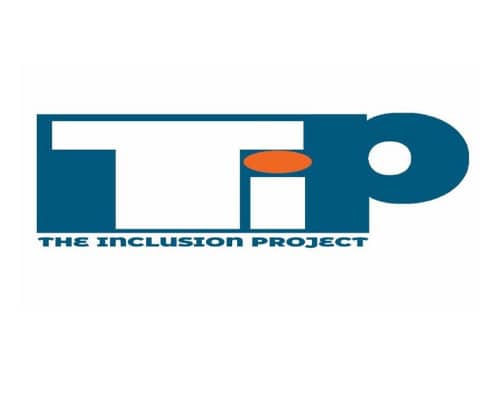
Member(s)
The Inclusion Project
on 13 September 2024
The Inclusion Project (TIP) is a legal services provider founded in 2019 and registered in Nigeria as The Inclusion Project.
2024
Nigeria
Document(s)
Seven Winters in Teheran
By Steffi Niederzoll, on 24 March 2023
2023
Multimedia content
Gender
Iran (Islamic Republic of)
Women
frMore details See the document
In the summer of 2007, an older man approaches Reyhaneh Jabbari and asks the architecture student who has a side job as an interior decorator for her help in the design of offices. During the site inspection, he tries to rape her. Reyhaneh stabs him in self-defence. She is arrested for murder and sentenced to death. Reyhaneh was to spend the next seven years in prison while her family hired lawyers and made the public aware of the case. However, in spite of the efforts of national and international politicians and human rights organisations, the Iranian judiciary continued to cite the “right of blood-revenge”. This meant that, as long as Reyhaneh did not withdraw her accusations against the man, his family could demand her death. Reyhaneh stuck to her testimony and was hanged at the age of 26.
In her moving and shockingly topical documentary debut, director Steffi Niederzoll uses among other things original audio and visual material that was smuggled out of Iran. This film, in which Holy Spider actor Zar Amir Ebrahimi lends Reyhaneh her voice, makes visible the injustice in Iranian society and portrays an involuntary heroine who gave her life in the fight for women’s rights.
- Document type Multimedia content
- Countries list Iran (Islamic Republic of)
- Themes list Gender / Women
- Available languages Sept hivers à Téhéran

Member(s)
Foundation for Human Rights Initiative (FHRI)
on 30 April 2020
The Foundation for Human Rights Initiative (FHRI) is an independent, non-governmental organisation aiming to enhance the knowledge, respect and observance of human rights in Uganda. FHRI’s objective is to remove obstacles to democratic development. The organisation defends the fundamental freedoms enshrined in the 1995 Ugandan Constitution and other internationally recognised human rights instruments. FHRI undertakes […]
2020
Uganda
Member(s)
European Association for Human Rights
on 30 April 2020
The European Association for Human Rights mainly promotes the welfare of prisoners. Its work is especially focused on taking care for death row prisoners and their children, and abolishing the death penalty. Many people on death row are dismissed in their search for help and support from the established human rights organizations. There is a […]
France
Document(s)
Central African Republic : Seventeenth Session of the Working Group on the Universal Periodic Review
By The Advocates for Human Rights, on 1 January 2014
2014
Multimedia content
Central African Republic
More details See the document
This submission addresses the Central African Republic’s compliance with its humanrights obligations with regard to its use of the death penalty. This submission concludesthat although the Central African Republic (CAR) should be given great credit for takingimportant steps towards abolition of the death penalty, including supporting the 2012U.N. General Assembly resolution calling for a moratorium on the death penalty, manyhurdles remain in terms of ensuring that the citizens of CAR are afforded adequatedomestic and international guarantees against the arbitrary deprivation of life.
- Document type Multimedia content
- Countries list Central African Republic
- Themes list Due Process , Trend Towards Abolition, Arbitrariness,
Document(s)
Children of parents sentenced to death or executed: How are they affected? How can they be supported?
By Child Rights Connect , on 8 September 2020
2020
Arguments against the death penalty
More details See the document
From the point of arrest decades after the execution or release of a parent accused of a capital crime, the children’s mental health and wellbeing, living situation, and relationships with others can all be affected, usually in a devastating manner. The inherent trauma of knowing that a loved one is going to be executed can be exacerbated by public indifference or hostility, and by authorities who either fail to recognise or deliberately refuse to consider the situation of these children. This publication addresses the challenges to support the children.
- Document type Arguments against the death penalty
- Themes list Juveniles, International law, Murder Victims' Families,
HOW-STATES-ABOLISH-THE-DEATH-PENALTY_A-SUPPLEMENT-OF-CASE-STUDIES
on 16 December 2022
HOW-STATES-ABOLISH-THE-DEATH-PENALTY_A-SUPPLEMENT-OF-CASE-STUDIES
2022
Poster World day against the death penalty 2024 – 2025 – Indonesian
on 24 July 2024
Poster World day against the death penalty 2024 – 2025 – Indonesian
2024
poster-21st-world-day-against-death-penalty
on 12 June 2023
poster-21st-world-day-against-death-penalty
2023
Document(s)
Imposing a Cap on Capital Punishment
By Adam M. Gershowitz / Missouri Law Review 72(1), 73-124., on 1 January 2007
2007
Article
United States
More details See the document
This article argues that because prosecutors have discretion to seek the death penalty in too many cases, they lack the incentive to police themselvesand choose carefully. Put simply, because there are few legal constraints — and virtually no political constraints — on the sheer number of cases in which prosecutors can pursue the death penalty, the Government is not under sufficient pressure to limit its use of capital punishment to only the most heinous cases. As a result, two things happen. First, the death penalty is sought and meted out in some cases, which though terrible, are no worse than the thousands of other murder cases in which prosecutors pursue only life imprisonment. Second, because prosecutors file too many capital cases, the criminal justice system lacks the resources to focus sufficient attention on each one.
- Document type Article
- Countries list United States
- Themes list Arbitrariness, Most Serious Crimes,
Document(s)
Poster World Day 2003
By World coalition against the death penalty , on 10 October 2003
2003
Campaigning
Trend Towards Abolition
frMore details See the document
Poster World Day 2003
- Document type Campaigning
- Themes list Trend Towards Abolition
- Available languages Affiche journée mondiale 2003
Document(s)
Poster World Day 2003
By World Coalition against the death penalty , on 10 October 2003
Campaigning
Trend Towards Abolition
More details See the document
Poster for the world day against the death penalty 2003
- Document type Campaigning
- Themes list Trend Towards Abolition
Document(s)
Poster 21st World Day Against the Death Penalty
By World coalition against the death penalty, on 12 June 2023
2023
Campaigning
World Coalition
aresfafrruzh-hantMore details Download [ pdf - 4027 Ko ]
- Document type Campaigning / World Coalition
- Available languages 2023 ملصق اليوم العال مPoster Spanish – 2023 Día Mundial contra la Pena de MuertePoster Farsi 2023 – بیستمین روز جهانی علیهمجازات مرگPoster 21ème Journée Mondiale contre la peine de mortPoster Russian 2023 — 21-Й ВСЕМИРНЫЙ ДЕНЬ БОРЬБЫ ПРОТИВ СМЕРТНОЙ КАЗНИPoster Chinese 2023- 第21个世界反对死刑日
Document(s)
Women and Death Penalty Factsheet – World Day 2023
By World coalition against the death penalty, on 15 August 2023
2023
World Coalition
Gender
frMore details Download [ pdf - 424 Ko ]
- Document type World Coalition
- Themes list Gender
- Available languages Faits et chiffres Les femmes et la peine de mort - 21e journée mondiale contre la peine de mort
Document(s)
Database Center for North Korean Human Rights – Briefings on public execution
By Database Center for North Korean Human Rights, on 8 September 2020
2020
Article
Republic of Korea
More details See the document
NKDB hosts a monthly English language briefing and discussion on North Korean human rights every month with embassy officials, NGO staff, and NKDB staff as guests
- Document type Article
- Countries list Republic of Korea
- Themes list World Coalition Against the Death Penalty, Death Penalty, Country/Regional profiles,
Document(s)
NGO Media Outreach: Using the Media as an Advocacy Tool
By Coalition for the International Criminal Court, on 1 January 2003
2003
Working with...
More details See the document
A guide for NGOs to use media effectively. This guide explains the importance of media, how to create contacts, how to prepare a media outreach campaign, how to deliver a campaign to the media and how to use available resources to support your media campaign.
- Document type Working with...
- Themes list Networks,

